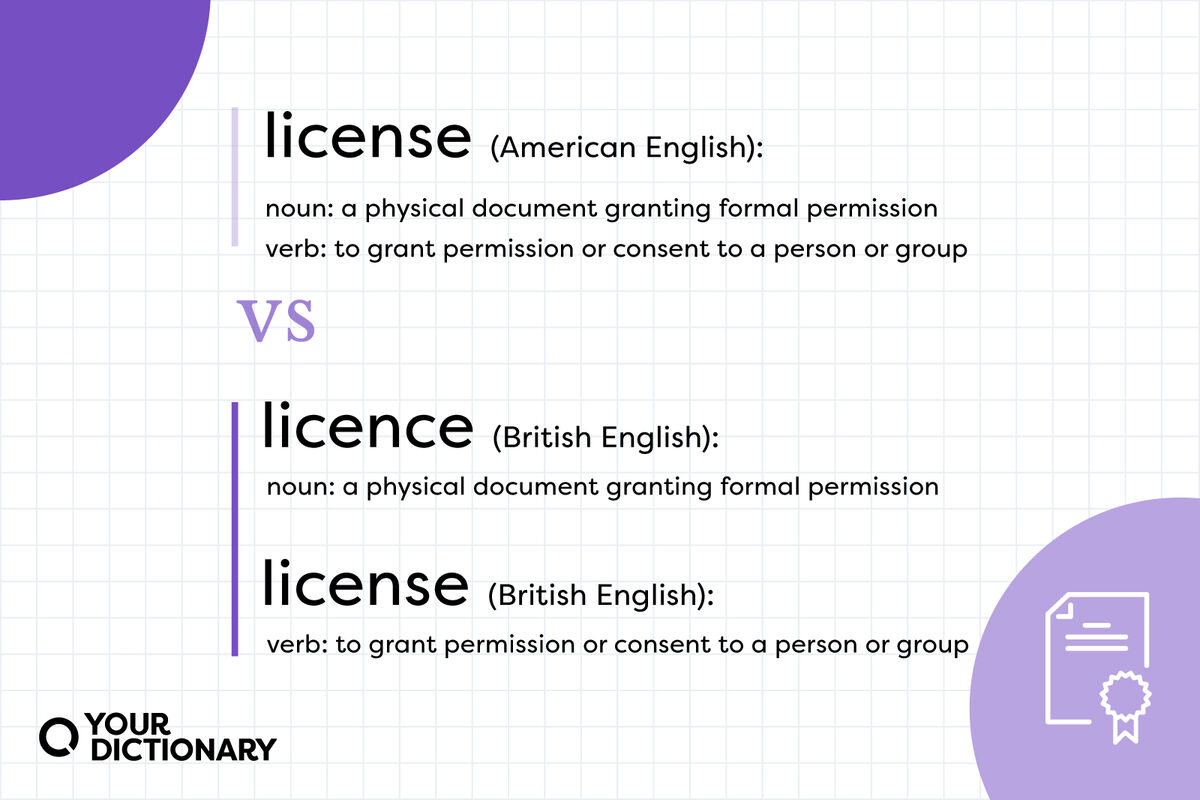
You hit the open road, wind in your face, someone in the passenger seat trying to navigate but only getting you lost, while your kids in the back squirm and ask, “Are we there yet?” every 10 minutes. This magic moment is brought to you by the immense privilege of having a driver’s license. Or is it driver’s licence? Both are right depending on regional differences, but it can get more complicated than you realize.
“Licence” or “License”: Which Is Correct?
Both licence and license are correct spellings of the same word. The difference in spelling largely comes down to regional differences. In American English, you will only ever see license spelled with an “S.”
The really confusing part comes from British English, which uses both license and licence. However, they aren’t interchangeable and depend on usage and what you’re talking about.
What Do “Licence” and “License” Mean in British English?
In British English, licence is a noun that refers to "formal permission from the government or other authoritative body that allows you to do something." It can also refer to "a certificate or other physical document symbolizing that formal permission."
- Even though the wedding ceremony wasn’t until tomorrow, the couple had gotten their marriage licence weeks ago.
- My driver’s licence is expiring in a couple of months.
You use license in British English as a verb that means "to grant permission or consent to a person or group."
- The government will license a new name for his business.
- The city licensed the cafe to serve coffee and pastries.
If you use British English or you’re reading something that uses British English, it might take a little more work and some context clues to figure out the right word.
| British English | American English | |
| Noun | He had a licence to dig a well in his backyard. | He had a license to dig a well in his backyard. |
| Verb | The city licensed him to dig a well in his backyard. | The city licensed him to dig a well in his backyard. |
A quick way to remember: Think of fences. A sturdy wooden fence is a noun, and fence is spelled with a “C,” just like licence (which is also a noun in British English).
What Does “License” Mean in American English
In American English, license covers both bases. It’s the noun referring to "the physical document granting formal permission."
- He had studied hard and spent hours behind the wheel to finally earn his driver’s license.
- I’m glad I applied for my fishing license so that I’m ready for our big trip to the lake.
License is also the verb form in American English referring to "the act of granting permission."
- The company will license songs for our videos.
- She licensed her plans for a 3D-printed ice cream maker.
If you’re writing in American English, you have it easy. Whether it’s a noun or a verb, you can just go with license with an “S,” and you’re set.
British English: Other Verb and Noun Variations
License and licence aren’t the only British English words that have different “C” and “S” spellings based on part of speech. For example, while American English uses practice for both noun and verb forms, British English uses practice as a noun and practise as a verb.
- Noun: I didn’t go to practice yesterday because I wasn’t feeling well.
- Verb: I should have practised more for my recital.
What’s interesting is that we have words like that in American English usage, too. Prophecy is a noun referring to "a prediction or foretelling that is to come," while prophesy is a verb meaning "to predict or foretell something."
- Noun: The prophecy spoke of a day filled with only pizza and cheeseburgers.
- Verb: The man prophesied a day full of pizza and cheeseburgers.
Similarly, advice is a noun referring to "a recommendation or bit of guidance," while advise is a verb meaning "to offer guidance or recommendation."
- I went to mom for some advice, and she really helped out.
- I advise you to not stand in the rain while wearing a suede jacket.